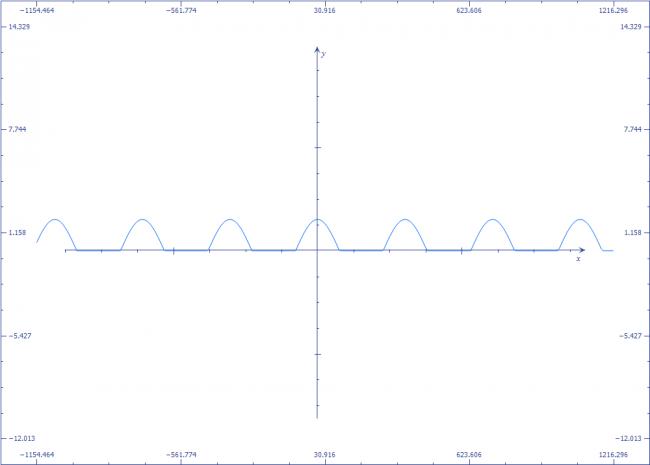haan toh do u have anymore doubt ??
Which of the following functions are differentiable at x=0?
A.) sinlxl+coslxl
B.)lxl+sinlxl
C.)lxl+coslxl
D.)lcosxl+coslxl
please give the reason i know the answer! but there is a controversy between the theory and answer given!!!!!
-
UP 0 DOWN 0 0 25

25 Answers
sir i have plottd in my note buk at this time i am not having my fone sir my father take it away .This is the only way dat i can draw.Tx for ur advice.
sankara.. you dont start using a plotter because you are not good..
you dont stop studying because you dont know things before hand
Please this is for your own good.. using such plotters is suicidal.
only d becos
in this option cos[x]+[cosx]=f(x)
f(0+)=cos[(0+h)]+[cos(0+h)]
f(0-)=cos[0-h]+cos[0-h]=f(0+)
and so the function is continous
and the graph for the function looks like

sry for using calc becos i am bad in drawing graph.
Bhiayya plz answer my application of Differentiation question??.......
@sky....
LHD is given by
lim h-> 0- f(h+0) - f(0) / h
= -h - sinh /h =-2
@terminator.. yes dude.
writing only for B...
lim h-> 0 - f(-h+0) - f(0) / -h
= -h -sinh -0 /-h =2
lim h-> 0+ f(h+0) - f(0) / h
= h + sin h - 0 / h = 2
all of them u can c are continuous.
now jus chcek at 0+h and 0-h .
also could be done by graphs but i think by first principle its much easier.
hmm.. even function... symm abt y-axis.. so waha pe it will have y'=0...
one small method to solve for such problems..
for even functions,
the RHD=0 will help
no other value of RHD at zero will give differentiable function..
why?